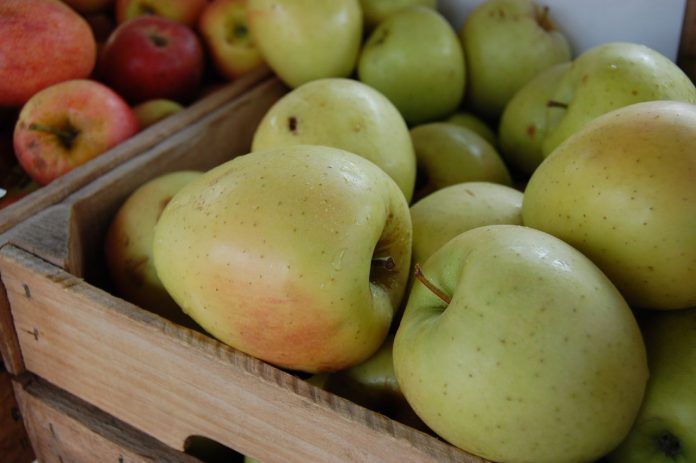New EU rules to protect farmers against unfair trading practices by buyers were approved, on Tuesday.
New rules, approved by 589 votes in favour to 72 against, with nine abstentions, blacklist practices, such as late payments for delivered products, late unilateral cancellations or retroactive order changes, refusal by the buyer to sign a written contract with a supplier and the misuse of confidential information. Threats of retaliation against suppliers, for instance delisting their products or delaying payments, to punish them for filing complaints, will also be outlawed.
Buyers will no longer be allowed to request payments from suppliers for deterioration or loss of products at the buyers’ premises, unless caused by the suppliers’ negligence or to make suppliers pay for the cost of examining customer complaints.
Supporting food producers against big buyers’ unfair trade practices (UTPs)
Other practices, such as returning unsold products to a supplier without paying for them, forcing suppliers to pay for the advertising of products, charging suppliers for stocking or listing of products, or imposing discount costs onto the supplier, would also be outlawed unless pre-agreed in the supply agreement.
Clear complaints procedure
Food suppliers will be allowed to lodge complaints where they are based, even if unfair trading occurred elsewhere in the EU. National enforcement authorities would handle complaints, conduct investigations and ensure solutions.
Protecting small and mid-range suppliers
New rules will protect small, medium-sized and mid-range suppliers with an annual turnover below €350 million. These suppliers will be divided into five sub-categories, (with turnovers below €2m, €10m, €50m, €150m and €350m), with the most extensive protection given to the smallest ones.
The European Parliament has repeatedly called for measures to tackle unfair trading practices (UTPs) in the food supply chain, since 2010, after adopting the resolution on fairer revenues for farmers and better functionality of the supply chain.
Putting a stop to late payments and short notice cancellations of orders
According to Commission estimates, agriculture and food processing SMEs in the EU lose between €2.5 – €8 billion per year (1% – 2% of their turnover) due to UTPs.
The anti-UTPs directive needs to be formally endorsed by the Council before it can enter into force. EU states will then have 24 months to introduce it to national laws. New rules should be applied 30 months after entering into force.
“David has finally defeated Goliath. Fairness, healthier food and social rights have finally prevailed over the unfair trading practices in the food supply chain. For the very first time in the EU history, farmers, food producers and consumers will no longer be bullied by big players”, said rapporteur Paolo De Castro (S&D, IT).
“Thanks to the crucial S&D commitment, the overwhelming majority of the European Parliament has today turned into reality a 10-year battle fiercely fought by our farmers and consumers to harmonise the 20 national legislations currently in force in the EU. We resisted against the pressure coming from lobbies, we didn’t bow to the Parliament’s ultra-liberal wing’s attempt to postpone this Directive. Our stubbornness has been bullet-proofed by European common citizens and producers, so that finally even the Council has unanimously backed our position. This is a great success, a beautiful day for Europe and for all Europeans. This is the EU we stand for. The EU that affects people’s daily life, by eradicating inequalities and fighting for citizens’ health, environment and fairness,” he added.
Giving food producers the right to request a written supply contract
EU wide-rules will protect suppliers like farmers and SMEs in the food chain against their more powerful players, including powerful retailers according to the EPP Group.
“The EPP Group has championed calls from Europe’s farmers for EU action to tackle unfair trading practices in the food supply chain”, said Mairead McGuinness MEP, the Group’s Chief Negotiator on the Report.
“It is a hugely significant piece of legislation which, for the first time, curtails the capacity of the powerful to squeeze the less powerful in the food supply chain. The inequality in the chain results in farmers being badly treated by the more powerful operators, including major retailers. Practices such as late payment and the cancellation of orders at short notice will be outlawed under the new legislation,” she added.
“The EPP Group has called for these fair rules for a long time. Now this work is being rewarded as we have garnered significant support for action. This Directive also contributes to the wider debate on the sustainability of our food supply chain”, underlined McGuinness.
ECR MEPs strongly backed the EU-wide minimum standards which prohibit eight commercial practices, including late payments for perishable products, last minute order cancellations and unilateral changes to supply agreements.
ECR MEP Anthea McIntyre, who followed the proposals for the Group, said: “For far too long farmers and growers have been in the most precarious position in the food supply chain and large retailers across the EU have been able to abuse their powerful position.
“Today’s vote is good news for farmers and consumers in the EU and beyond. I am particularly pleased that suppliers outside the EU are included, so not only will farmers in Kenya and Peru be protected, but post-Brexit UK farmers will be treated fairly when selling into the EU,” added McIntyre.

